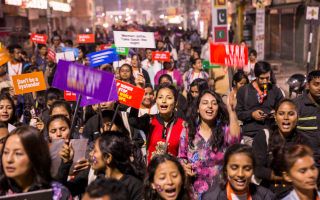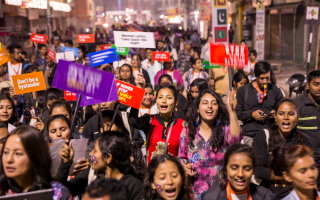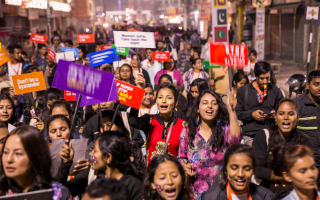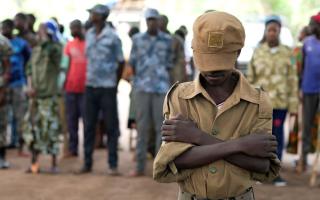Realizing the Youth, Peace and Security Agenda
There is a growing recognition that young people can play a meaningful role in preventing and resolving conflict and building sustainable peace. Young people have the undeniable right to participate in the maintenance of peace and security – from political, electoral or peace processes, to informal participation at the community level and in digital spaces. Young peoples’ meaningful participation and influence improve the relevance, effectiveness and impact of peace and security initiatives, policies and decisions. This course – developed jointly by UNSSC and the Folke Bernadotte Academy (FBA) – will provide practitioners with the skills and knowledge to effectively implement the youth, peace and security agenda – while working with and for young people in peace and security.
The growing recognition of young women and men as a positive force in preventing and resolving conflict and building sustainable peace has gained momentum with the adoption of the UN Security Council (SC) resolutions 2250 (2015), 2419 (2018) and 2535 (2020) on youth, peace and security (YPS). YPS has developed into a comprehensive agenda that aims to enable, support and increase young people’s agency on peace and security matters and meaningful participation at all levels of decision-making. Young peoples’ meaningful participation and influence in peace-building processes is a right as much as an asset that can improve the relevance, effectiveness and impact of peace and security initiatives, policies and decisions.
Although there has been progress and recognition of young people’s essential role in peace and security, a more systematic approach to implementing the resolutions on YPS is urgently needed. The international community needs to support young women and men in fulfilling their full potential as a positive force for building peaceful and just societies, and action is needed to ensure that expertise on youth and peace and security within the multilateral system is adequately positioned at the local, country, regional and global levels.
This course will enable you to:
- Argue the rationale for the youth, peace and security agenda to internal and external stakeholders,
- Facilitate youth participation, engagement and influence in peace and security initiatives,
- Apply a youth lens on context and conflict analyses,
- Coordinate, advice, strategically plan and report on YPS issues as well as use capacity development strategies, and
- Formulate youth sensitive theories of change and outcome statements, and analyse YPS programmes for results.
- Identify good practices and pathways for implementing the YPS agenda
This course is delivered entirely online. It combines self-paced modules with live sessions as well as interactive spaces for experience sharing, joint reflection and peer exchange. UNSSC and FBA facilitators will guide and interact with you throughout the course.
This online course is spread over a year and it is divided into two parts:
- Part I - YPS Foundational Skills (Modules 1, 2, 3) will run from 16 April until 6 May 2024. This part includes one mandatory written assignment.
- Part II - YPS Applied Skills (Modules 4, 5, 6) will run from 9 September until 4 October 2024. This part includes two elective written assignments.
The course requires approximately 3-4 hours of self-study per week. In addition to the self-study, the course includes three written assignments and six live webinars. Successful course completion requires completion of the three foundational learning modules plus completion of one of the three elective learning modules, including the respective assignments.
The course is hosted on the UNSSC online learning platform, which allows you a high degree of flexibility to access content at your own pace, from anywhere and at any time.
16 April - 6 May 2024: Part I - YPS Foundational skills:
- Module 1: Introduction to the Youth, Peace and Security Agenda
- Module 2: Enabling meaningful youth participation
- Module 3: Conducting youth-sensitive conflict analysis
9 September - 4 October 2024: Part II - YPS Applied Skills (elective modules):
- Module 4: Serving as a YPS adviser/focal point
- Module 5: Youth-responsive & YPS-focused programming
- Module 6: In-country implementation of the Youth, Peace and Security Agenda
Practitioners and representatives from the UN system, international and regional security organizations, non-governmental organizations and civil society working with the Youth, Peace and Security Agenda.
The course fee is $1,250. The fee includes access to all training and learning materials as well as participation in live online sessions and one-to-one support from a UNSSC facilitator.
Selection criteria:
The selection criteria include quality of motivation, relevant experience and knowledge, commitment, diversity (gender, geographic region, sector, etc.), and willingness to contribute to the course.
Please provide a clear motivation statement and a short explanation of the benefit you can derive from the course as well as your possible contribution to enriching it. UN applicants are also required to provide a supervisor’s endorsement in the online application.




